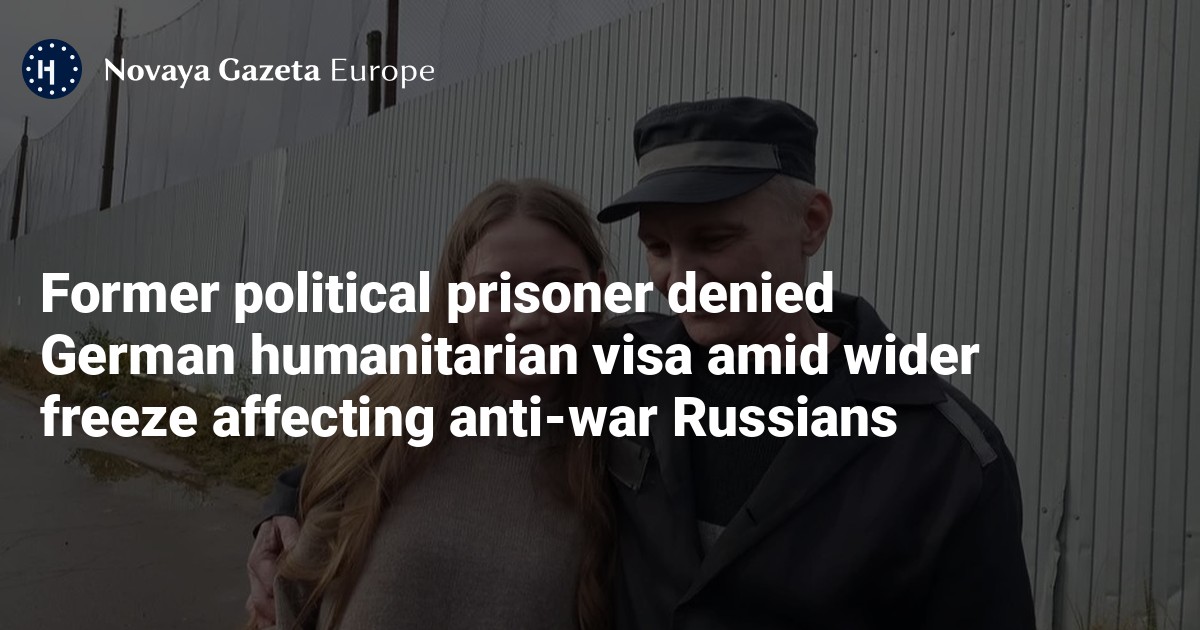



Alexey Moskalyov with his daughter Maria on his release from prison on 15 October 2024. Photo: SOTAvision
A prominent former Russian political prisoner and his daughter have been denied a humanitarian visa to Germany, amid a wider freeze on humanitarian visa applications currently impacting hundreds of other anti-war Russians, independent Russian radio station Ekho FM reported on Thursday, citing several individuals and organisations who have been denied entry to the country.
According to Ekho FM, the German government has not granted humanitarian visas to Alexey Moskalyov and his teenage daughter, Masha Moskalyova, for over six months, despite him formerly serving a one-year prison sentence in Russia for anti-war social media posts, a case that gained international prominence in 2023 when several major Russian human rights organisations petitioned European authorities to come to his aid.
Moskalyov was first investigated by Russian authorities in April 2022 after his daughter drew an anti-war picture during an art class at school. Subsequently, several of Moskalyov’s social media posts in which he had condemned the war in Ukraine came to light. He was charged with “discrediting the army” in December 2022 and was initially placed under house arrest, pending trial.
In March 2023, Moskalyov fled house arrest and was detained in Belarus while attempting to leave Russia. He was extradited to Russia and imprisoned there for two years, before being released in October 2024. According to Ekho FM, he and his daughter are currently outside of Russia, continuing to seek asylum in Germany.
On 23 July, the German Interior Ministry suspended its humanitarian visa admission programme, an initiative that had previously helped individuals at risk of persecution due to human rights activism in authoritarian states, such as Belarus, Russia, and Iran, to receive entry to the country.
Since the start of the full-scale war in Ukraine, the programme had helped over 2,600 anti-war Russian activists, politicians, organisations, and journalists safely relocate to Germany, according to The Ark, an initiative helping anti-war Russians in emigration.
“Germany was a leader in protecting those who resist Putin’s regime. Now that such individuals are no longer having their cases accepted, it feels like people are being left alone in the face of repression,” one coordinator for the InTransit human rights initiative told EkhoFM anonymously.
According to Ekho FM, in addition to the Moskalyovs, some 300 other anti-war Russians were awaiting the issuing of humanitarian visas prior to the programme’s cancellation, including many under active threat of criminal prosecution.
Human rights activists and lawyers are now preparing an appeal to the German Interior Ministry to preserve the visa programme, Ekho FM reported.
The German government has not yet commented publicly on the case of Moskalyov and his daughter, nor on the denial of humanitarian visas to anti-war Russian dissidents.
